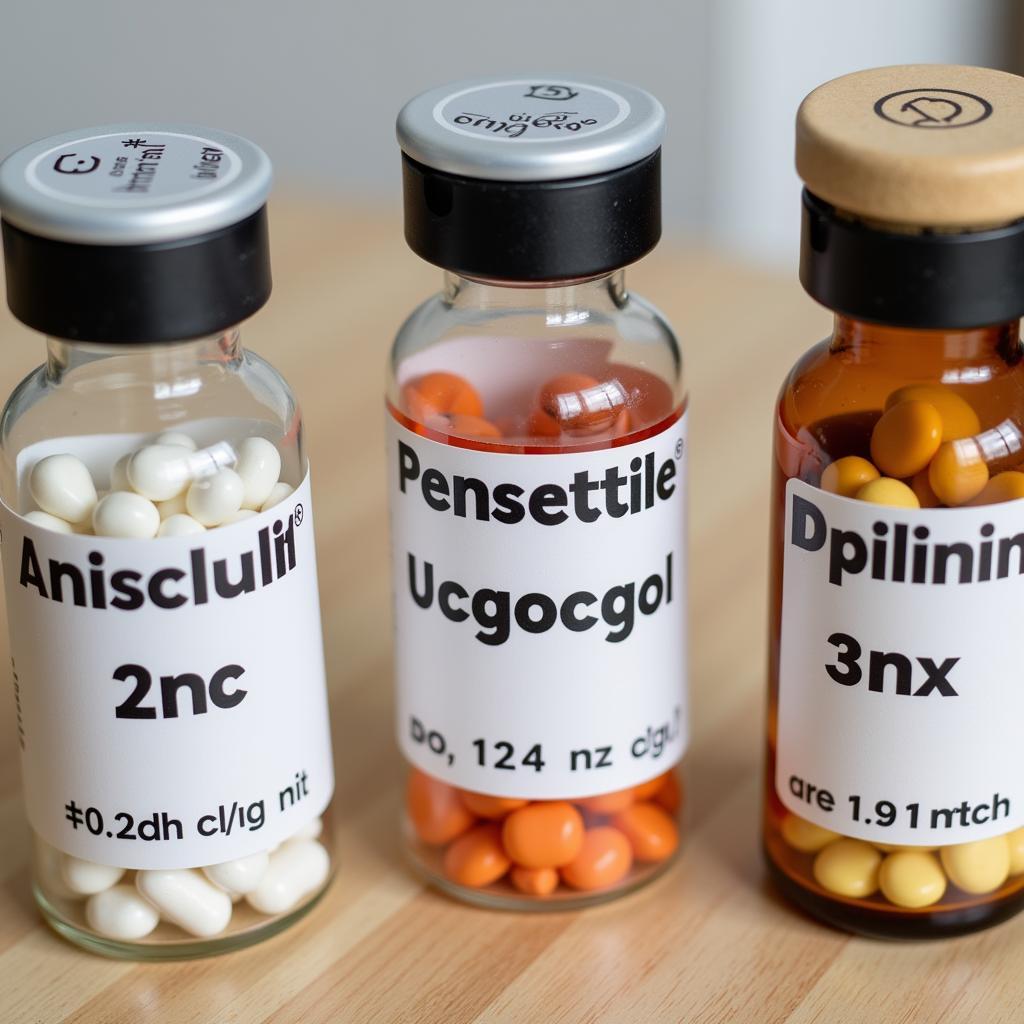Penicillin Dosage For Horses is a crucial topic for horse owners. Understanding the correct dosage, administration, and potential side effects is vital for responsible horse care. This guide will delve into the specifics of penicillin use in horses, providing you with the information you need to make informed decisions about your horse’s health.
Understanding Penicillin for Horses
Penicillin is a common antibiotic used to treat bacterial infections in horses. It works by inhibiting the growth of bacteria, allowing the horse’s immune system to fight off the infection. Various forms of penicillin are available, each with its own specific dosage and administration guidelines. It’s essential to consult with a veterinarian to determine the appropriate type and dosage of penicillin for your horse’s particular condition. Never attempt to self-treat your horse with antibiotics.
Determining the Correct Penicillin Dosage for Horses
The correct penicillin dosage for horses varies depending on several factors, including the type of infection, the horse’s weight, and the specific form of penicillin being used. Generally, the dosage is calculated based on the horse’s weight, typically measured in milligrams per kilogram (mg/kg). Your veterinarian will perform a thorough examination to determine the appropriate dosage and treatment duration for your horse.
Different Forms of Penicillin for Horses
Several types of penicillin are available for veterinary use, including procaine penicillin G, benzathine penicillin G, and potassium penicillin. Each form has different properties that affect its duration of action and how it’s administered. For instance, procaine penicillin G is often administered intramuscularly, while potassium penicillin may be given intravenously.
 Different types of penicillin vials for horses
Different types of penicillin vials for horses
Administering Penicillin to Horses
Penicillin is most commonly administered to horses through intramuscular injection. It’s crucial to use proper injection technique to minimize discomfort and prevent complications. Your veterinarian can demonstrate the correct procedure and provide guidance on safe injection practices. Never attempt to administer injections to your horse unless you have been properly trained. anipsyll for horses
Potential Side Effects of Penicillin in Horses
While generally safe, penicillin can cause side effects in some horses. These can range from mild allergic reactions, such as hives or swelling, to more severe reactions like anaphylaxis. If you notice any unusual signs in your horse after penicillin administration, contact your veterinarian immediately. Proper monitoring is essential during any antibiotic treatment. penicillin for horses
Conclusion: Prioritizing Your Horse’s Health with Proper Penicillin Dosage
Administering the correct penicillin dosage for horses is critical for effective treatment and preventing potential complications. Always consult with a veterinarian for accurate diagnosis and treatment recommendations. Never attempt to self-treat your horse, as this can be dangerous and potentially harmful. By working closely with your veterinarian and following their instructions carefully, you can ensure your horse receives the best possible care. Remember, responsible horse ownership involves seeking professional guidance for all health concerns. sa powder for horses
FAQ
- Can I give my horse penicillin that I have leftover from a previous prescription? No, never administer leftover medication.
- What are the signs of a penicillin allergy in horses? Hives, swelling, difficulty breathing, and colic are potential signs.
- How long does penicillin treatment typically last for horses? The duration of treatment varies depending on the infection.
- Can I purchase penicillin for my horse without a prescription? No, penicillin requires a prescription from a licensed veterinarian. antibiotics for horses without vet prescription
- What should I do if my horse misses a dose of penicillin? Contact your veterinarian for advice.
- How is penicillin stored? Follow the storage instructions provided on the medication label.
- What are alternative treatments for bacterial infections in horses if they are allergic to penicillin? Your veterinarian can recommend alternative antibiotics.
When you need help, contact us. Phone: 0772127271, Email: [email protected] Or visit us at: QGM2+WX2, Vị Trung, Vị Thuỷ, Hậu Giang, Việt Nam. We have a 24/7 customer support team.